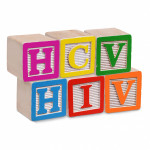Gilead Sciences’ Epclusa (sofosbuvir/velpatasvir) boasted near-perfect hepatitis C virus (HCV) cure rates among both those with and without HIV in a recent study.
Publishing their findings in Alimentary Pharmacology & Therapeutics, researchers conducted a study of 12 weeks of a generic version of Epclusa with or without ribavirin among 69 people coinfected with HIV and HCV and 159 people monoinfected with HCV.
A total of 67 (97.1 percent) of the coinfected individuals and 156 (98.1 percent) of the monoinfected individuals achieved a sustained virologic response 12 weeks after completing therapy (SVR12, considered a cure). The difference between these cure rates was not statistically significant, meaning that it could have occurred by chance and that the cure rate did not significantly differ according to HIV status.
Prior to treatment 122 (53.5 percent) and seven (3.1 percent) of the participants had mutations in their hep C known as resistance-associated substitutions that are associated with resistance to the NS5A and NS5B inhibitor class of hep C medications. The presence of such mutations was not linked to any difference in the likelihood of achieving a cure of the virus.
One (1.4 percent) and five (3.1 percent) of those with and without HIV, respectively, experienced serious adverse health events during treatment.
Those people with HIV receiving treatment with Viread (tenofovir disoproxil fumarate), which is included in multiple single-tablet HIV regimens as well as Truvada (tenofovir disoproxil fumarate/emtricitabine), did not see declines in their eGFR (a measure of kidney function) during Epclusa treatment. Viread is associated with kidney toxicities.
To read the study abstract, click here.







Comments
Comments